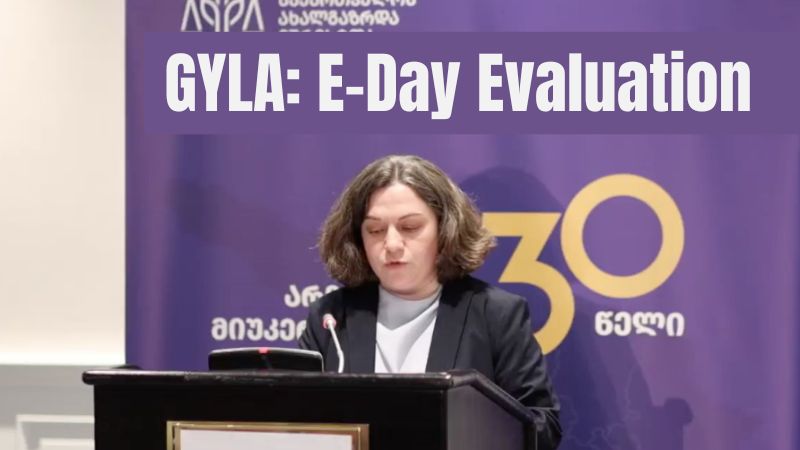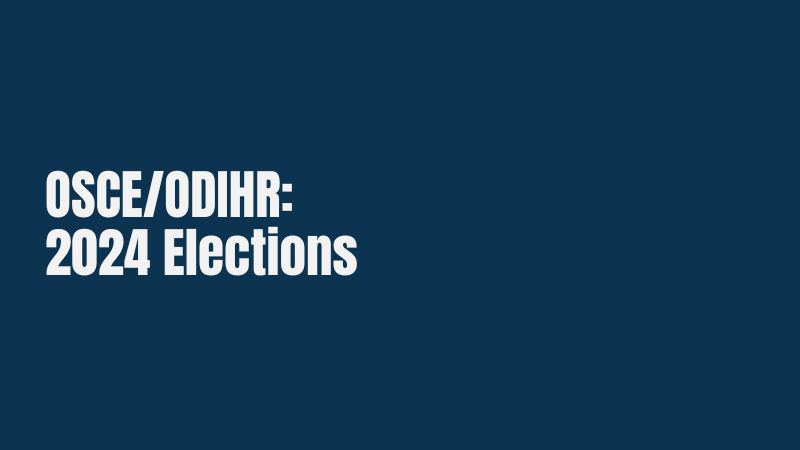On October 27, Georgian Young Lawyers’ Association (GYLA) summarized evaluation of the Election Day. Here’s unchanged text of the statement:
The voting day of the 26 October 2024 parliamentary elections took place in an environment marked by significant violations, largely characterized by inequality, violence, and tension.
Considering the nature, intensity, and interrelation of these violations, GYLA’s observation mission highlights the main violations as follows:
Failure to Adhere to Basic Voting Procedures – Violations related to inking procedures were identified in various forms. Some voters were not inked at all, or they were asked whether they wished to have inking fluid applied. Additionally, in certain cases, the special flashlight failed to detect the ink, allowing voters to enter the precinct without proper verification. Instances were also recorded of voting by individuals already bearing ink traces. Moreover, there were occurrences of double verification and cases where the same individual cast votes multiple times.
Obstruction of Observers in Conducting Their Activities – Throughout the day, observers encountered various obstacles that hindered their ability to ensure a free and transparent observation process. GYLA recorded incidents of threats against observers, interference in the monitoring process by election commissions, verbal abuse, and instances of observers being expelled from precincts. Observers faced particularly aggressive attitudes when raising concerns about violations of the inking procedures.
Violation of Ballot Secrecy and Influence on Voter Will – At the majority of precincts observed by GYLA, video cameras installed by the “Georgian Dream” party were noted, which in some cases faced the registrars’ tables and verification devices, and in others, the voting booths and main ballot box. The quality of the ballots did not prevent colored marks from being left on the reverse side. The concurrence of these two factors significantly raises the risk of undue influence on voter will. Additionally, various episodes of secrecy violations were recorded, including instances where voting occurred alongside unauthorized accompanying persons.
Throughout the day, incidents outside the precincts included tension, tracking of arriving voters, obstruction of journalists in performing their duties, inadequate performance of duties by commission members, instances of illegal campaigning, and other issues related to the use of electronic technologies. Following the precincts’ closure, additional violations were reported, including issues concerning ballot invalidation, sealing of the record book, and access to documentation of the electoral precinct.
The primary violations and concerns about the reliability of the processes bring to the forefront the need for clarification from the Central Election Commission. In conditions where the full list of voters is loaded into verification devices, it is necessary to explain which mechanisms are used to ensure that duplicate lists were not activated across various precincts. This matter particularly requires clarification given the serious violations associated with the inking procedures.
GYLA’s observation mission continues its activities and remains engaged in reviewing the summary protocols prepared by the precinct election commissions.







